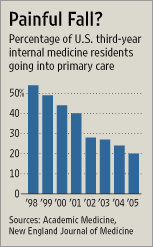Baby Charlotte Wyatt Must Die: English Courts Rule Doctors, Not Parents, Get to Decide
A British High Court judge has ruled that doctors who want to let Charlotte Wyatt die must be allowed to do so, despite the wishes of her parents.
The parents of Charlotte Wyatt have been told that doctors are to be allowed to let their profoundly ill baby daughter die if they feel it is in her best interests.
A High Court judge yesterday lifted a previous ruling that she should always be resuscitated, on the grounds that the two-year-old was now on a “downward rather than an upward trend”. Mr Justice Hedley heard an emergency application from doctors treating her that she had developed an aggressive chest infection and was unlikely to survive any moves to keep her alive. “Medical evidence speaks with one voice, that ventilation simply will not achieve the end for which no doubt the parents would wish,” he said.
Charlotte’s condition was said to be “deteriorating” last night. Her mother, Debbie, 24, from Portsmouth, still believes that if her daughter were ventilated she would recover. But Mr Justice Hedley said there had been a “very significant deterioration in Charlotte’s condition”. It is the fifth time he has had to make a ruling about Charlotte’s treatment.
Doctors at St Mary’s Hospital, Portsmouth, had previously argued that her life was so intolerable that if her condition worsened they should be allowed to withhold treatment. Charlotte suffers from severe lung, brain and kidney damage. But her condition improved so much that last October the judge removed a ruling allowing doctors to let her die.
A sad case. It may well be that the doctors are right and that the parents are clinging to false hope out of sheer desperation. One would think, though, that the decision would be theirs. Unfortunately, when the state pays for health care, it gets to make these decisions.
Her parents, Darren and Debbie, have dedicated a blog to updating the world on Charlotte’s plight and are generating quite a bit of buzz. Michelle Malkin and others are doing their part.






Let’s be honest enough to say, that we have always seen this coming. This is precisely what happens when the entity that is paying for the medical procedure gets to decide what medical procedure they’re going to pay for. And, the thing is, they always will have that ability; once the power has been given to the government to make such choices, there is simply no legal remedy for it.
They’ve been installed in the position of making such choices by virtue of:
* government power
* government money being used
* a willingness on the part of the populace to accept whatever the government pukes up
And the cries of her parents, alas, are too little too late.
I’m sorry James, I have no kinder words for it.
What we’re seeing here, is the single logical conclusion that can come of turning medical decision-making, And responsibility for all medical finances, over to the government.
And just think; the Democrats having their way, Hilary Care becoming the thing, we’ll have this outrage here in the United States very shortly, now.
Don’t be surprised if the likes of GM and Ford start to push for such state funded national health care plans as a means to “level the competitive playing field” against foreign competitors. I can see the GOP happily jumping on the bandwagon.
Only because given the pressure that the democrats are been putting on this country for such mandatory government paid for health care for the last 30 some odd years. As an example; The only reason that Bush got involved with his prescription medicine program for example is he saw such government involvement inevitable given the pressure, And felt it better to install a zone program so as to minimize the damage of such programs.
But, think, now; if the GOP saw a groundswell against such government involvement in health care which way do you think that would go?
It’s sad that, 231 years after the damn thing started, they’re still justifying our revolution.
The same GOP that braved all kinds of vituperation to try to save Terri Schiavo? Put down the crack pipe, DC.
Mc Geehee, when big business wants it, the GOP will go along. Mark my words, I’ll even entertain a friendly wager (let’s say a bottle of each of our favorite spirits) that in five years we’ll see more Republican acceptance of some type of national health care initiative if only to relieve businesses of their liability.
I’m with DC Loser on this one. It strikes me as inevitable. Businesses are already talking about this. They see it as a way to cut their costs.
Of course, it is short-sightedness, IMO. Such a program will have to paid for via higher taxes. Higher taxes means their customers will have less after-tax income to spend on their goods and services.
Why think this at all? This is what typically happens. Look at the recent decision by Canada to effectively outlaw various fertility treatments. Samething as we have here. Letting the parents always make the decision will mean there is, effectively, no cap on spending even for hopeless cases.
Before we turn this into a right to life debate, or commentary about how socialized medicine would affect us, we need to look at the facts:
Sounds to me like it is an overwhelming professional opinion against the hopes of a 24-year old mother. So what is a reasonable request to make of the health care provider? Obviously, parents would stop nothing short of complete and total organ replacements to save their child, but would it help? That’s where we have to rely on the professional’s expertise. There are education and licensing requirements to make sure we can trust their judgement.
On government health care, I don’t think we should have it. The bureaucracy has managed to screw up and increase the costs of everything they’ve done. However, I don’t think the care provider has any incentive to “save costs” by denying care to their patients.
Back in the mid-90s, there was a similar case that seized British public attention. A young girl with cancer had undergone a transplant operation as her only hope. The operation, of course, was done under the National Health Service.
The transplant did not work for very long and her father sought a second operation.
NHS doctors said, “No.” The operation was very expensive and had almost no chance of succeeding. To spend the money on the transplant would result in the deprivation of medical care for hundreds of lesser, but still real, medical interventions for other patients within that local health care facilty’s orbit.
Lots of hullabaloo in the media about the coldly clincal approach by the NHS, but also successful efforts to raise funds for the requested operation. Sufficient funds were raised, the operation was performed, and the girl, unfortunately, died within months.
A unitary health service, with finite funding, will necessarily lead to “rationing” of health care. Demand exceeds supply and choices have to be made. Those unhappy with the choice do have the right to seek outside-the-box funding, as was done in the earlier case. That’s no guarantee of success, of course, but it is recourse.
As the sudden leap to privatized medical services in Canada–now that it’s legal–shows, a unitary health service cannot be the only health service available in a democracy. But choices will still need to be made, if not by the government, then by those with the (in)ability to pay.
If you’re right, I’ll quit the GOP. What do I get if you’re wrong?
No, I want the booze. You can name your booze if you win.